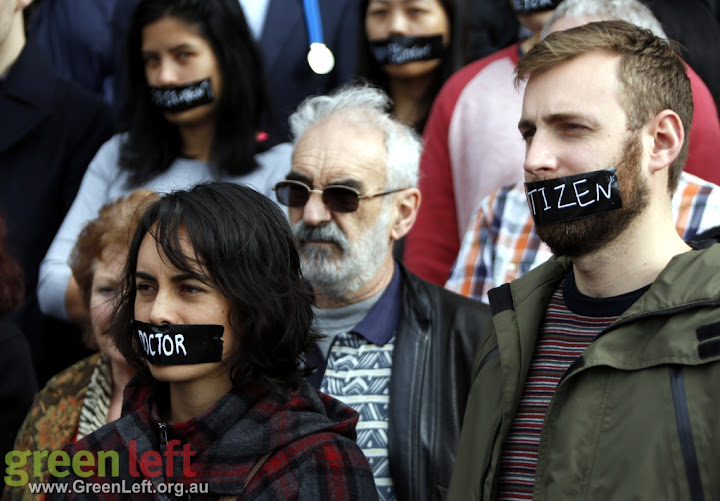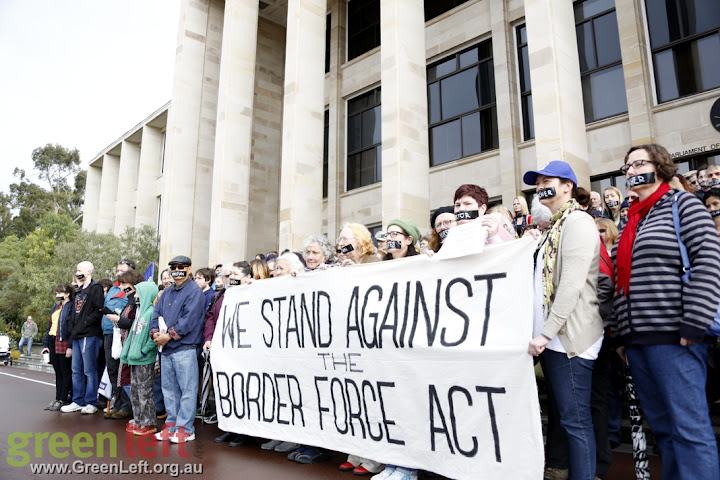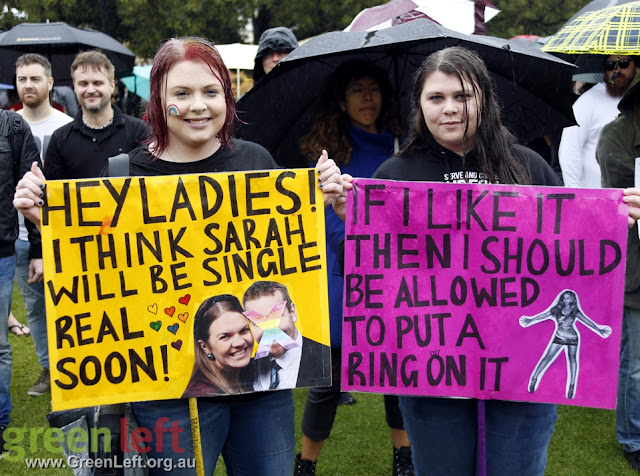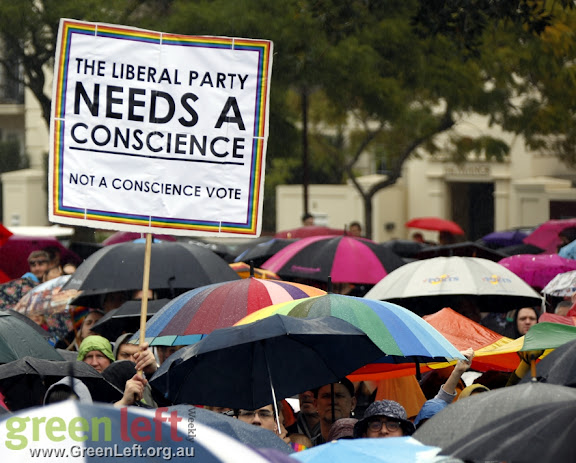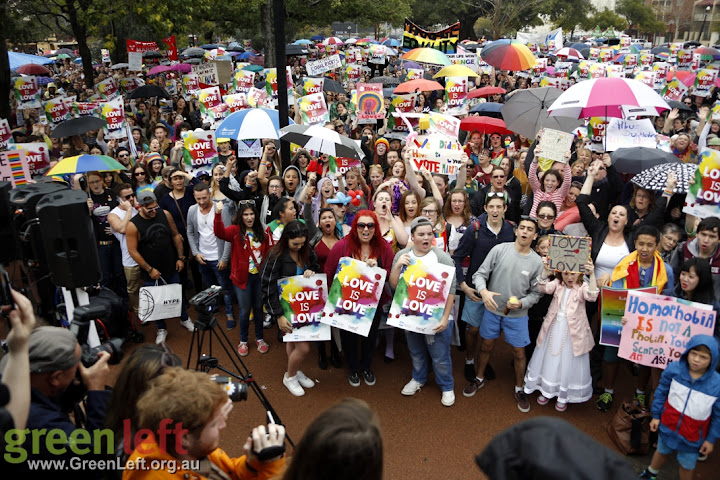Tuesday, July 28, 2015
Protest against Bandyup Women’s Prison overcrowding
There has been a dramatic rise in incarceration rates, particularly for non-violent acts such as non-payment of fines. About 30% of women detained at Bandyup are there because of unpaid fines; 30% have existing and severe mental health problems; and 90% have been physically and/or sexually assaulted at some point in their lives.
The Bandyup Prison, the only women's jail in Western Australia, was built with an original design capacity of 180 persons. According to the Deaths in Custody Watch Committee (DICWC) WA, the population of the prison today is more than 300, with those without beds sleeping on the floor on mattresses next to toilets.
This overcrowding is directly linked to higher levels of distress and anxiety for those detained there. Recently a 50-year-old woman ended her life in the shower block. Overcrowding and security issues also makes gaining access to meetings with lawyers on time difficult.
Bandyup was built as a maximum security facility, but less than 10% of the women there are detained for crimes requiring high security.
One of the common causes of “maximum security” incarceration is for the homicide of an intimate partner. Studies show that many of the women jailed for the killing of an intimate partner often experienced years of violence from that person, and that violence used is most likely in the context of defending oneself.
This kettling of larger populations of prisoners comes as funding for women's refuges and crisis accommodation in the community is being cut despite an epidemic of violence against women. Every week, two women are killed in cases of domestic violence across Australia, and every three hours a woman is hospitalised.
Aboriginal women are dramatically over-represented in WA prisons. Aboriginal women make up 3% of the total state population, but 50% of inmates at Bandyup. More than 70% of women detained for fine defaults are Aboriginal, indicating that the very poorest suffer most under these laws.
There is a new women's prison planned for WA, planned to cost $22 million. While it is being built it is suggested that part of the Hakea men's prison be partitioned to deal with the overcrowding at Bandyup.
However BAG says that building new prisons is not the answer. BAG activist Kelly Somers said: "If you build more prisons, you're going to put people in them. Let's find other ways to understand and overcome why women are going to jail."
Mark Newhouse from the DICWC told Green Left Weekly: “What the community needs is properly funded community legal and social services. That's where this $22 million and much more should be going."
On July 20 the ABC reported on a new 12-month trial that will start soon in Western Australia. For the first time in this country, people who have committed low-level crimes can sign a pledge of “good behaviour” to avoid a prison term.
Warren Mundine, head of the prime minister's Indigenous Advisory Council, supports the project, and according to the ABC said: "The best time to intervene is after someone's first offence."
Surely the best time for intervention is not at first contact with the criminal justice system, but through a proactive approach to funding the services the community is so much in need of: housing, employment, health and an end to the racism that sees such appalling over-representation of Aboriginal people in jail and dying so much earlier than their non-Aboriginal counterparts.
Measures to avoid sending people to jail are welcome, but unless these underlying issues are addressed there will be no justice or real change for those suffering now and into the future.
[This article by Chris Jenkins was first published in Green Left Weekly #1062.]
























